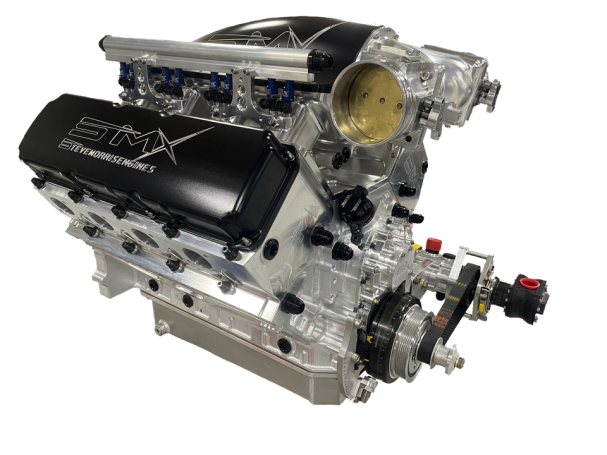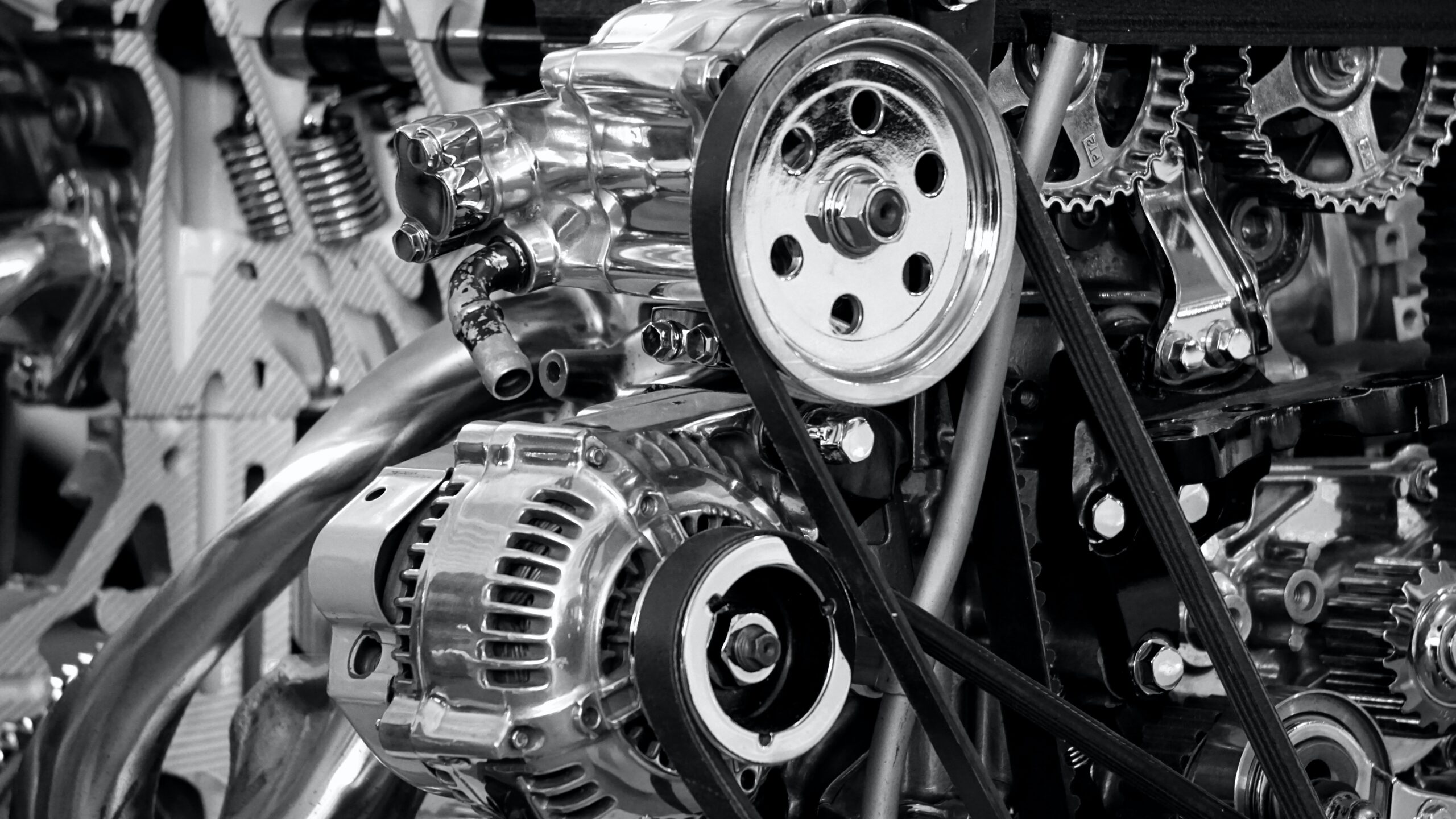Engines For Africa Offers Motors You Can Depend On
Engines For Africa Offers Motors You Can Depend On
Blog Article
Check Out a Large Range of Engines for Every Automobile and Purpose
The automobile landscape is progressively intricate, with a varied range of engine kinds developed to satisfy certain performance and effectiveness requirements throughout various automobile categories. From the high-performance engines that power sporting activities cars and trucks to the fuel-efficient options tailored for day-to-day commuting, the selections are substantial and varied. Furthermore, heavy-duty engines serve the requirements of job lorries, while green options are getting traction in the search of sustainable transportation. Recognizing these differences is essential for making educated decisions, especially as emerging modern technologies continue to form the future of automobile engineering. What ramifications might these improvements hold for makers and customers alike?
Kinds Of Automotive Engines
Automotive engines can be classified into a number of unique types, each designed to fulfill certain efficiency and effectiveness demands. One of the most common classifications include internal burning engines, electrical engines, and hybrid systems.

Electric engines, on the other hand, operate electric power saved in batteries, supplying immediate torque and absolutely no emissions. These engines are becoming increasingly popular because of innovations in battery modern technology and the growing emphasis on sustainability.
Crossbreed systems incorporate both inner combustion and electric engines, allowing automobiles to optimize gas effectiveness and reduce discharges by seamlessly switching between power sources. Each engine kind presents its disadvantages and advantages, influencing aspects such as automobile style, planned usage, and market need. When selecting the ideal engine for their certain demands., understanding these distinctions is critical for customers and suppliers alike.
Performance Engines for Sports Cars
Performance engines for cars are specifically engineered to provide improved speed, dexterity, and power, setting them besides basic auto engines. These engines often make use of sophisticated technologies such as turbocharging, supercharging, and variable shutoff timing to make best use of efficiency and responsiveness.
Usually, efficiency engines are designed with higher compression ratios, which enable higher power removal from gas. This results in outstanding horse power and torque figures, making it possible for quick acceleration and higher full throttle. The lightweight products made use of in these engines, such as light weight aluminum and carbon fiber, contribute to decreased overall car weight, enhancing handling and maneuverability.
Engine setups like V6, V8, and even hybrid systems prevail in efficiency sporting activities cars and trucks, each offering unique benefits in terms of power distribution and driving dynamics. The adjusting of these engines is additionally essential; many suppliers maximize the engine monitoring systems to offer an exciting driving experience, typically consisting of sport settings that change throttle response and equipment changes.
Reliable Engines for Daily Commuters
In the world of everyday commuting, reliable engines play a crucial duty in maximizing gas economic situation and reducing emissions while offering reliable efficiency. As metropolitan populaces expand and ecological problems escalate, the need for vehicles equipped with efficient powertrains has surged.
Modern engines designed for everyday commuters often include modern technologies such as turbocharging, straight gas shot, and crossbreed systems. Turbocharging improves engine performance by requiring more air into the burning chamber, enabling smaller sized, lighter engines that do not compromise power outcome. Straight gas shot enhances fuel atomization, bring about better burning and increased efficiency.
Hybrid engines, combining internal burning with electrical power, more enhance fuel economic climate, especially in stop-and-go web traffic, where conventional engines can struggle with inadequacies. Electric motors help during velocity and can run independently at reduced speeds, reducing overall fuel consumption.
Moreover, improvements in engine management systems and lightweight products add substantially to efficient engine design. By concentrating on performance, toughness, and environmental sustainability, suppliers remain to deliver engines that not only satisfy the needs of day-to-day commuting but also align with global efforts to lower carbon impacts.
Heavy-Duty Engines for Work Vehicles
Heavy-duty engines for check my source work cars are consistently engineered to supply outstanding torque and reliability under demanding problems. These engines are designed to do in atmospheres where traditional engines might falter, such as building sites, logging operations, and agricultural settings. The key focus of heavy-duty engines is their capability to create high levels of power while keeping sturdiness over prolonged periods of operation.
Typically, sturdy engines use advanced products and durable building and construction methods to hold up against the rigors of hefty workloads. Functions such as strengthened cyndrical tube blocks, improved cooling systems, and progressed fuel injection modern technologies add to their performance. These engines usually run at reduced RPMs, which helps to enhance fuel effectiveness while supplying the required power for pulling and transporting.
Along with mechanical toughness, sturdy engines are frequently furnished with innovative electronic control units (ECUs) that handle efficiency, emissions, and diagnostics. This assimilation enables better surveillance and upkeep, making certain that work vehicles continue to be efficient and functional.
Ultimately, durable engines are a vital component in the performance of different markets, giving the required power and integrity to take on the most difficult of tasks.
Eco-Friendly Engine Options
The expanding emphasis on sustainability has actually resulted in the development of eco-friendly engine choices that focus on reduced emissions and boosted fuel efficiency. These engines are created to minimize the environmental influence of cars while still providing the performance and integrity anticipated by consumers.
Among the most notable green options are electric and hybrid engines. Hybrid engines combine conventional internal combustion engines with electrical propulsion, permitting decreased gas consumption and reduced greenhouse gas emissions. Electric engines, on the various other hand, run completely on battery power, producing no tailpipe emissions and adding to cleaner air high quality.
An additional appealing growth is the advancement of biofuel engines, which use eco-friendly resources, such as plant materials, to power lorries (Engines For Africa). By using biofuels, these engines can minimize dependence on fossil fuels and lower overall carbon impacts

As the vehicle sector develops, green engine choices will certainly play a vital function in driving the shift towards even more lasting transportation solutions.
Final Thought
The vehicle industry provides a diverse range of engines made to satisfy different vehicle requirements and purposes. From high-performance engines that enhance sporting activities cars and truck capacities to effective designs prioritizing gas economic climate for everyday travelers, each type serves a details function. Sturdy engines satisfy robust work cars, while environment-friendly choices, such as electrical and biofuel engines, advertise sustainable transportation. This comprehensive range makes certain that all driving needs are attended to, adding to innovations in automotive modern technology and ecological stewardship.

Report this page